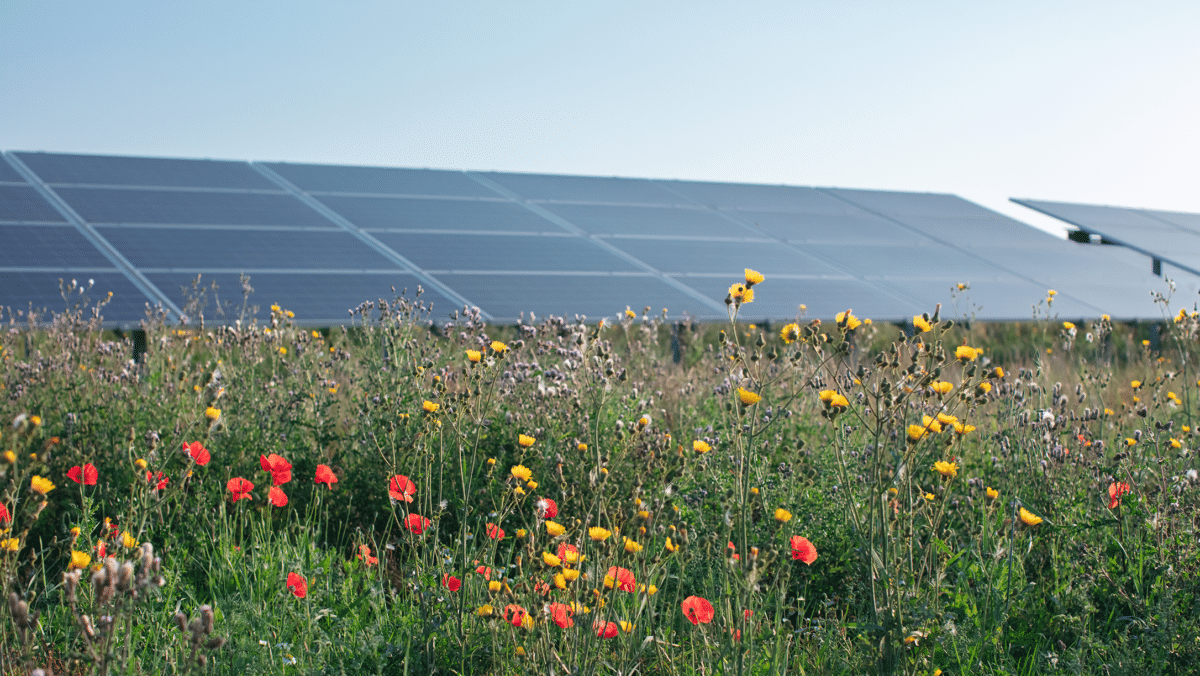Danish clean energy company Better Energy is developing a PV plant project in the wetlands of Denmark's Vordingborg Municipality that it describes as “a new type of solar park”.
The PV plant, which is expected to supply approximately 42,000 households with green energy, will be built on lowlands with carbon-rich soil that will be taken out of agricultural production and restored to wetlands in the area of Køng Mose.
“If we are to have a reasonable chance of achieving our climate goals in Denmark, we must increase the expansion of solar energy capacity on land,” said Better Energy CEO Rasmus Lildholdt Kjær. “We can achieve a positive double effect on CO2 reductions when we place solar parks on carbon-rich lowlands that can then be removed from agricultural production and restored as wetlands.”
Better Energy will build the new solar park on very low-lying terrain that has been artificially drained, Lildholdt Kjær explained. “In the future, the land will be re-wetted and restored to its original wetland state.”
Installations for wetlands require a wide range of new technical features as well as a completely new design and construction, he added, but stressed the importance of demonstrating that it was possible. “Hopefully, our experiences will pave the way for many other solar parks to be built on restored wetlands.”
If 10,000 hectares of carbon-rich low-lying areas were restored to wetlands for solar power generation, it would correspond to approximately 20% of Denmark's total electricity consumption, the company noted. “This will mean significant reductions of CO2 in agriculture and a significant increase in our renewable energy supply at the same time.”
According to the Danish Council on Climate Change, the removal of artificially drained lowlands from agricultural production and the restoration of these areas to wetlands constitutes one of the key focus areas in reaching Denmark's climate targets. The Council published a report earlier this year showing that the restoration of wetlands had the second largest carbon reduction potential this decade, only surpassed by the introduction of 1.5 million electric vehicles.
This point is also echoed by the Danish government’s climate partnership report on food and agriculture. It suggests a potential CO2 reduction of 1.4 million tons by 2030 if 47,700 hectares of lowlands with carbon-rich soil were restored to wetlands.
Current tax laws hinder the restoration of wetlands, however, Better Energy stated. “The Danish Agriculture & Food Council estimates that land taxes will increase nine-fold if a farmer with 70 hectares chooses to remove 30 hectares of low-lying areas from agricultural production, restore wetlands and establish a solar park,” the company explained. In that case, the land would be taxed as commercial land and not agricultural land. On the other hand, if the farmer plants biomass crops for the production of electricity, the land would be taxed at a lower rate.
“The current tax system is hindering the green transition,” said climate director Niels Peter Nørring of the Danish Agriculture & Food Council. “Farmers are currently punished if they choose to re-wet lowlands and establish solar parks on the land.”
The lowland area where the new solar park will be built has been designated by the local authorities. The PV plant is expected to improve conditions for biodiversity as various kinds of flora will be planted once the solar park is built.
“Solar parks are important elements in the local transition to renewable energy, and the restoration of wetlands has been a major factor in the municipality’s prioritisation of this area for a solar park,” said Vordingborg Municipality Mayor Mikael Smed.
The solar park in Køng Mose is expected to produce 170,000 MWh annually, equal to 70% of the electricity consumption in Vordingborg Municipality. The park is expected to begin operation in 2022.
This content is protected by copyright and may not be reused. If you want to cooperate with us and would like to reuse some of our content, please contact: editors@pv-magazine.com.



By submitting this form you agree to pv magazine using your data for the purposes of publishing your comment.
Your personal data will only be disclosed or otherwise transmitted to third parties for the purposes of spam filtering or if this is necessary for technical maintenance of the website. Any other transfer to third parties will not take place unless this is justified on the basis of applicable data protection regulations or if pv magazine is legally obliged to do so.
You may revoke this consent at any time with effect for the future, in which case your personal data will be deleted immediately. Otherwise, your data will be deleted if pv magazine has processed your request or the purpose of data storage is fulfilled.
Further information on data privacy can be found in our Data Protection Policy.